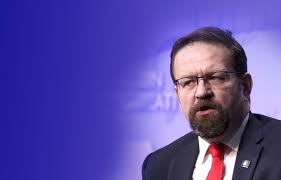An American official warns of the ambiguity of the Syrian situation.

Sebastian Gorka, the director of U.S. counterterrorism, described the situation in Syria as "mysterious and complex," pointing to the increasing areas of influence and competition among active forces after the collapse of Bashar al-Assad's regime.
This came during an interview with "Breitbart News," where he said, "No one knows what will happen in Syria, as the country is experiencing an unclear turning point."
Gorka expressed concern about the nature of the relationship between the new leadership in Syria and extremist groups, saying, "The resistance leader who ousted Assad and now controls the reins of power has old ties to terrorist organizations," referring to interim president Ahmed al-Shar'a. Nevertheless, he noted that Assad's fall "weakened Iranian and Turkish influence in the region."
Regarding the political orientations of the new regime, Gorka pointed to statements by President Shar'a about adopting Islamic Sharia as a primary source of legislation, considering it problematic in a multi-sectarian country like Syria. He added, "The fate of figures like al-Julani is still uncertain, further complicating the scene."
Gorka explained that Syria is witnessing an unprecedented geographical distribution of influence, with the Syrian Democratic Forces and Kurds controlling the east, Israeli forces in the south, and Turkey expanding its military and economic investments. He commented, "Anyone claiming to know Syria's future is deceiving you; the situation there is volatile and unstable."
He linked the Israeli attack on October 7th and the fall of the Assad regime, considering that Tel Aviv reshaped the entire region, saying, "What Israel did will leave its mark on the Middle East for at least a hundred years."
Gorka discussed the shift in U.S. counterterrorism policy under the Trump administration, noting that the former president and his national security advisor, Mike Flynn, "eliminated the policy of hesitancy in targeting jihadist elements, opting for direct strikes without waiting for White House approval."
He cited an operation in Somalia, where Trump ordered the elimination of ISIS elements that had been monitored since the Biden era without action. He also mentioned American strikes in Iraq and Syria, leading to "the largest military operation in Yemen against the Houthis," who had repeatedly attacked American ships, explaining, "The goal was to neutralize their threat and reopen safe maritime passages."
In conclusion, Gorka defended the slogan "America First," affirming that Trump "is not isolationist but demands allies to shoulder their responsibilities." He pointed out that Trump's positions spurred international actions, as in the case of Gaza, where his statements helped break the international deadlock.